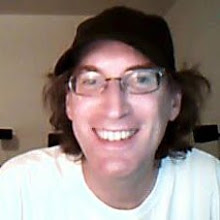It's an important essay because within it, there pulsates a whole slew of vital issues where some level of contradiction and tension is far more defensible than their opposites: being a Jew and an American, being a conservative who can see the role of liberalism in the West (and vice-versa), and being a secular citizen with profound respect for and engagement with religious truth.(italics mine)
What exactly is "religious truth"? Theistic claims are non-empirical (right?), so how does one assess the veracity of the claim?
I can understand if a theist makes a claim that he regards as an axiom of his religious faith, but then I don't understand why that merits "profound respect," since (religious) axioms are a dime a dozen. Labeling an axiomatic claim a "religious truth" doesn't make the claim profound somehow.




There are a couple of quotes I like along these lines:
ReplyDeleteWe must respect the other fellow's religion, but only in the sense and to the extent that we respect his theory that his wife is beautiful and his children smart.
-- H L Mencken
Even a superstitious man has certain inalienable rights. He has a right to harbor and indulge his imbecilities as long as he pleases, provided only he does not try to inflict them upon other men by force. He has a right to argue for them as eloquently as he can, in season and out of season. He has a right to teach them to his children. But certainly he has no right to be protected against the free criticism of those who do not hold them. He has no right to demand that they be treated as sacred. He has no right to preach them without challenge.
- H L Mencken, "Aftermath" (coverage of the Scopes Trial) The Baltimore Evening Sun, (September 14, 1925)